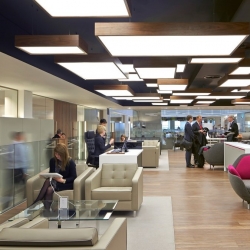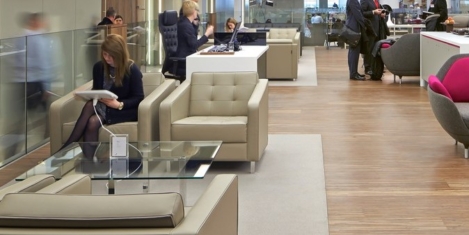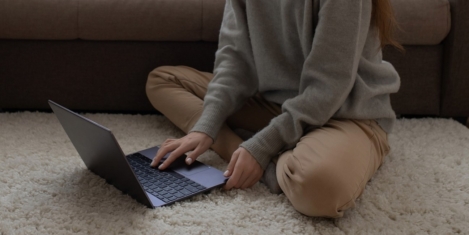September 1, 2021
Search Results for: office
August 27, 2021
Growing health concerns and preference for hybrid work among US employees
by Jayne Smith • Flexible working, News, Wellbeing, Working lives
 Envoy has released the results from its latest Return to Work report that gauges sentiment among 1,000 US employees who have returned to the workplace within the past year. As COVID-19 cases continue to rise, many companies are wrestling with the decision to postpone reopenings, even as scores of office workers are already back in the workplace. (more…)
Envoy has released the results from its latest Return to Work report that gauges sentiment among 1,000 US employees who have returned to the workplace within the past year. As COVID-19 cases continue to rise, many companies are wrestling with the decision to postpone reopenings, even as scores of office workers are already back in the workplace. (more…)
August 26, 2021
Working from home could help older workers stay in work longer
by Neil Franklin • Flexible working, News, Wellbeing
 Older workers might choose to delay their retirement if offered the option of continuing to do their jobs working from home after the pandemic, according to new research from the UK’s Office for National Statistics. The ONS study found those in their 50s and 60s who worked from home during the coronavirus crisis said they were planning to retire later than those who were still travelling to their workplace. (more…)
Older workers might choose to delay their retirement if offered the option of continuing to do their jobs working from home after the pandemic, according to new research from the UK’s Office for National Statistics. The ONS study found those in their 50s and 60s who worked from home during the coronavirus crisis said they were planning to retire later than those who were still travelling to their workplace. (more…)
August 26, 2021
Over half of UK employers say their staff work additional unpaid hours every day
by Jayne Smith • Flexible working, News, Wellbeing, Working lives
 In its latest whitepaper, Cendex, part of XpertHR, claims that staff at over half (53 percent) of UK organisations are working additional unpaid hours every day. A quarter (24 percent) of employers put this down to the pandemic and its resultant uptick in remote working, as they believe working from home blurs the line between work life and home life. (more…)
In its latest whitepaper, Cendex, part of XpertHR, claims that staff at over half (53 percent) of UK organisations are working additional unpaid hours every day. A quarter (24 percent) of employers put this down to the pandemic and its resultant uptick in remote working, as they believe working from home blurs the line between work life and home life. (more…)
August 25, 2021
Changing workplace means a changing role for finance heads
by Martyn Draper • Comment, Jobs, Technology, Workplace
 The CFO and Finance Director role is undergoing rapid change. Not only are they required to manage the traditional priorities of the job, but they must now also juggle a wide array of operational, transactional and commercial responsibilities. With added pressure from clients because of Covid-19 and a rapidly evolving workplace, the role is increasingly hard to navigate. To gain a deeper insight into this and the evolution and future planning of a department that is central to the success of modern businesses, Totum recently surveyed CFOs and Finance Directors from among UK headquartered legal firms with annual revenue of £20m or more. (more…)
The CFO and Finance Director role is undergoing rapid change. Not only are they required to manage the traditional priorities of the job, but they must now also juggle a wide array of operational, transactional and commercial responsibilities. With added pressure from clients because of Covid-19 and a rapidly evolving workplace, the role is increasingly hard to navigate. To gain a deeper insight into this and the evolution and future planning of a department that is central to the success of modern businesses, Totum recently surveyed CFOs and Finance Directors from among UK headquartered legal firms with annual revenue of £20m or more. (more…)
August 23, 2021
Hybrid is most popular working set-up, but most would rather be full-time in workplace
by Jayne Smith • Flexible working, News, Working lives
 ‘Hybrid’ is the ideal working environment among Brits today, but twice as many workers would like to be 100 percent office-based than work permanently from home, according to the latest research from LifeSearch. (more…)
‘Hybrid’ is the ideal working environment among Brits today, but twice as many workers would like to be 100 percent office-based than work permanently from home, according to the latest research from LifeSearch. (more…)
August 19, 2021
Nearly half of British business leaders fear losing the UK’s best talent abroad
by Jayne Smith • Business, Flexible working, News, Working culture
 MovePlan in partnership with Hanson Search, claims that 40 percent of business leaders fear that the combination of the pandemic and Brexit will see their best talent disappear abroad, making hiring more challenging, just as the country begins to return to the ‘new normal’. (more…)
MovePlan in partnership with Hanson Search, claims that 40 percent of business leaders fear that the combination of the pandemic and Brexit will see their best talent disappear abroad, making hiring more challenging, just as the country begins to return to the ‘new normal’. (more…)
August 18, 2021
Workplace technology helped meet short term lockdown challenges, but its real impact is yet to come
by Simon Haighton-Williams • Comment, Technology
 Thinking back to the fast pace of life 18 months ago, the working day looked very different. COVID-19 forced a significant adjustment in how many workforces operate, including the enforced use of multiple workplace technology tools to collaborate. How will our use of collaboration tools change as we go through pandemic recovery? How can businesses ensure they continue to transform their workflows in a way that gives them maximum efficiency and productivity? (more…)
Thinking back to the fast pace of life 18 months ago, the working day looked very different. COVID-19 forced a significant adjustment in how many workforces operate, including the enforced use of multiple workplace technology tools to collaborate. How will our use of collaboration tools change as we go through pandemic recovery? How can businesses ensure they continue to transform their workflows in a way that gives them maximum efficiency and productivity? (more…)
August 17, 2021
Security careers come in many forms, but all are rewarding and challenging
by Freddie Steele • Company news, Jobs, Workplace
 Are you considering a change in career paths? One sector that you may wish to strongly consider is the security industry. Whether a retail store, office block, or nightlife venue, most businesses will usually require security personnel. Therefore, this is an industry where there is always demand for new staff. Working in security careers can be thrilling, challenging and rewarding. There should be no doubting the fact that every day offers something completely different. Choosing a job that suits you is no simple decision with several different security career paths that you can go down.
Are you considering a change in career paths? One sector that you may wish to strongly consider is the security industry. Whether a retail store, office block, or nightlife venue, most businesses will usually require security personnel. Therefore, this is an industry where there is always demand for new staff. Working in security careers can be thrilling, challenging and rewarding. There should be no doubting the fact that every day offers something completely different. Choosing a job that suits you is no simple decision with several different security career paths that you can go down.
(more…)






 A new study, commissioned by
A new study, commissioned by 





 A new
A new 


 New research from
New research from 








August 26, 2021
Working from home: how far we’ve come and where we might be headed
by Georgina Smith • Comment, Flexible working, Workplace design